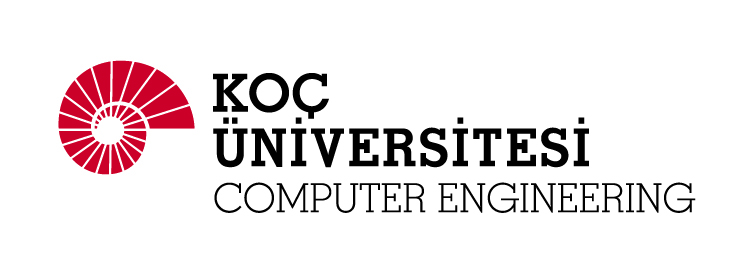Mandatory, non-credit courses:
COMP 590 SEMINAR
COMP 595 M.SC. THESIS
COMP 695 PH.D. THESIS
ENGL 500 GRADUATE WRITING
TEAC 500 TEACHING EXPERIENCE
LIBR 500 LIBRARY RESEARCHER DEVELOPMENT
M.Sc. and Ph.D. level elective courses:
COMP REGULAR OFFERINGS: 16 courses
COMP 504 DIGITAL SPEECH AND AUDIO PROCESSING
COMP 506 DIGITAL IMAGE AND VIDEO PROCESSING
COMP 508 COMPUTER VISION AND PATTERN RECOGNITION
COMP 510 COMPUTER GRAPHICS
COMP 513 INFORMATION THEORY
COMP 515 DISTRIBUTED COMPUTING SYSTEMS
COMP 529 PARALLEL PROGRAMMING
COMP 534 COMPUTER AND NETWORK SECURITY
COMP 537 INTELLIGENT USER INTERFACES
COMP 540 INFORMATION RETRIEVAL
COMP 541 MACHINE LEARNING
COMP 542 NATURAL LANGUAGE PROCESSING
COMP 543 MODERN CRYPTOGRAPHY
COMP 546 ALGORITHM DESIGN AND ANALYSIS
COMP 570 BIOINFORMATICS AND ALGORITHMS
COMP 589 SOFTWARE RELIABILITY: SPECIFICATION, TESTING AND VERIFICATION
COMP SPECIAL TOPICS or IRREGULAR OFFERINGS: 11 courses
COMP 544 COMPUTATION AND COMPLEXITY
COMP 550 ACTIVE LEARNING
COMP 550 ADVANCED CRYPTOGRAPHY
COMP 550 ADVANCES IN DISTRIBUTED SYSTEMS
COMP 550 ALTERNATIVE USER INTERFACES
COMP 550 BAYESIAN STATISTICS AND MACHINE LEARNING
COMP 550 COMPILER DESIGN
COMP 550 COMPUTATIONAL NATURAL LANGUAGE LEARNING
COMP 550 MONTE CARLO METHODS
COMP 550 SPEECH RECOGNITION
COMP 550 PARALLEL ARCHITECTURES
OTHER DEPARTMENTS: 32 courses
CMSE 501 INTRODUCTION TO COMPUTATIONAL SCIENCE
ELEC 501 RANDOM PROCESSES
ELEC 505 LINEAR SYSTEM THEORY
ELEC 511 DIGITAL COMMUNICATIONS
ELEC 514 WIRELESS COMMUNICATIONS
ELEC 528 WIRELESS NETWORKS
ELEC 530 DETECTION AND ESTIMATION THEORY
INDR 501 OPTIMIZATION MODELS AND ALGORITHMS
INDR 503 STOCHASTIC MODELS AND THEIR APPLICATIONS
INDR 511 ADVANCED OPTIMIZATION METHODS
INDR 513 ADVANCED STOCHASTIC PROCESSES
INDR 520 NETWORK MODELS AND OPTIMIZATION
INDR 530 DECISION ANALYSIS
INDR 562 INTEGER AND COMBINATORIAL OPTIMIZATION
INDR 564 DYNAMIC PROGRAMMING
INDR 566 SCHEDULING
INDR 568 HEURISTIC METHODS
INDR 574 STOCHASTIC MODELS IN FINANCIAL ENGINEERING
MATH 503 APPLIED MATHEMATICS I
MATH 504 NUMERICAL METHODS I
MATH 506 NUMERICAL METHODS II
MATH 521 ALGEBRA I
MATH 522 ALGEBRA II
MATH 525 ALGEBRATIC NUMBER THEORY
MATH 527 NUMBER THEORY
MATH 531 REAL ANALYSIS I
MATH 532 REAL ANALYSIS II
MATH 536 APPLIED FUNCTIONAL ANALYSIS I
MATH 565 GRAPH THEORY
MECH 522 COMPUTATIONAL FLUID DYNAMICS
MECH 534 COMPUTER BASED SIMULATION AND MODELING
MECH 544 ROBOTICS
Further elective courses may be taken with the advisor’s approval.
COMP 590 Graduate Seminar course information and Rules
Spring 2024
All COMP graduate students (MS and PhD students) have to fulfill the requirements of the Comp 590 seminar course before graduation.
Every MS student has to take the course two times (in two separate semesters) and get S as grade.
Every PhD student has to take the course four times (in four separate semesters) and get S as grade. (Note: If a PhD student has MS degree in COMP program at Koç University, then the student has to take the course two times (in two separate semesters) and get S as grade.)
You are recommended to fulfill the requirements of the course by the end of the first year (for MS students) and by the end of the second year (for PhD students).
The course will continue to be automatically added to your program every semester until you get two times S (for MS students) / four times S (for PhD students) from the course. If you are on an official leave, please present a form at the beginning of each semester.
A grad student must attend and report at least 5 seminars to get S as grade from this course in a given semester. The seminars attended should have taken place within the same semester (February 2024 to June 2024).
The seminars to attend are not pre-arranged, or forced upon you. You may attend any seminar of your choice, as long as your advisor approves (the seminar can even be held at another institution or another related department).
Furthermore, there is no need to get a signature during the seminar. After each seminar you attend, you need to do the following:
- Prepare a paper including
– Seminar title and info (e.g., date, location, online link)
– Speaker info (e.g., name, institute, web page)
– One-page summary (described below)
- Take this paper to your advisor to obtain her/his name and signature on it. Include your advisor’s name on your report as well.
- Submit your reports in PDF format via the corresponding Blackboard assignments(deadline: 7th June, 2024 Friday)
* If you have given a seminar yourself (e.g., at a conference, or at a reading group), perform the steps above to get it counted.
* Out of a single event (e.g., conference), you may only have one seminar that you attend counted, on top of the seminar you have given, if any.
One suggested source for keeping up with seminars is the event list:
Your grade (S/U) depends on the following:
– If you attend less than 5 seminars per semester, you get U.
– Each seminar report you submit will be graded over 20 pts. (Thus, 5×20 = 100 pts total)
– You need to obtain at least 10 pts from each 20 pts report.
– You need a total of 60 pts or above to get S.
What does getting U mean?
* If you get U in any semester, you will not get the research/travel award for that academic year.
* If you get U twice, you will be expelled from graduate school.
Paper grading items (4 pts each)
– A clear problem definition
– Summary of proposed solution
– Main differences from related work
– Conclusions
– Your questions
For each item:
– Getting 4 pts means you did very good
– Getting 3 pts means you did good
– Getting 2 pts means you did ok
– Getting 1 pts means you did below average
– Getting 0 pts means you did almost nothing
Sample seminar reports are provided on this website for your reference. Late or unsigned submissions will not be accepted.
Good luck.
COMP Graduate Program Coordinators
